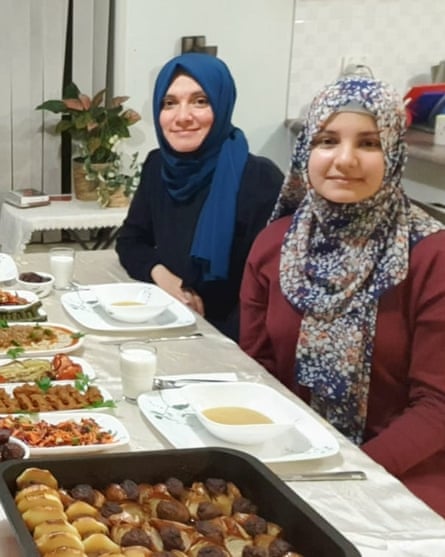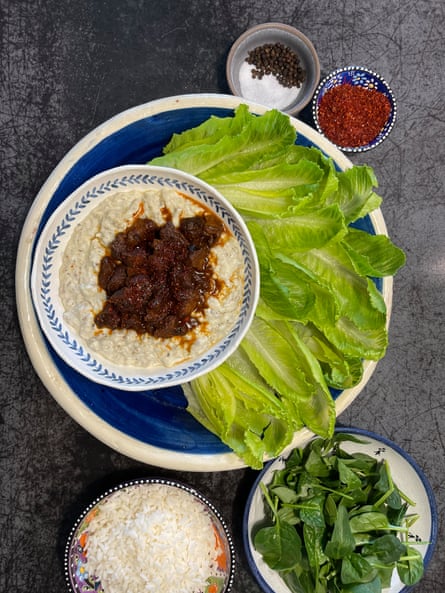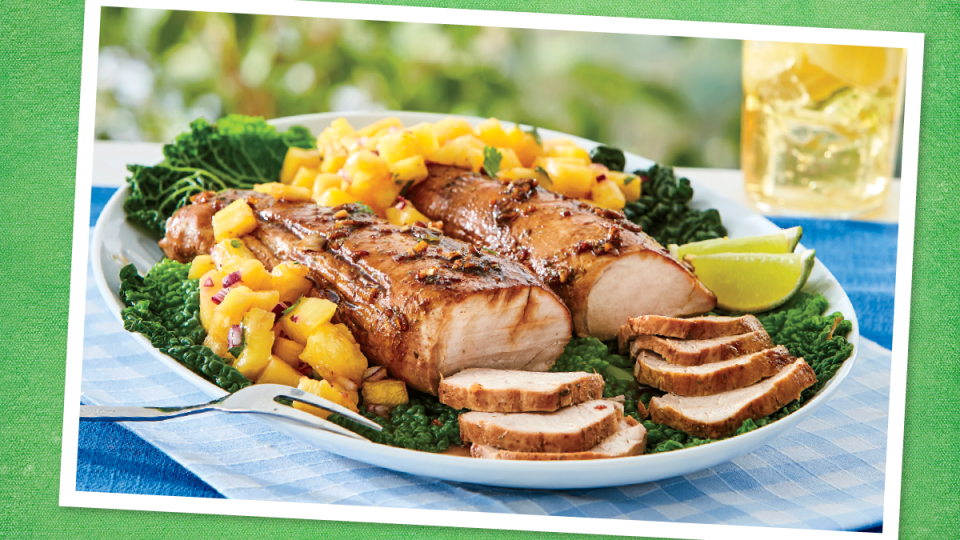For Ramadan, my family and I cook ali nazik kebab, a delicious marriage of char-grilled smoked eggplant mixed with yoghurt and topped with tender lamb stew. For our special occasions, my dad becomes our masterchef and does most of the shopping. My mum and I help him with the preparation and organising in the kitchen. Ali nazik is one of our favourite dishes and comes from his home town Gaziantep, in south-east Turkey.
Before the recent earthquake Gaziantep was known as the Paris of the east of Turkey. It was famous for its economy, living standards and its food. The word “antep” actually means delicious food and talented and generous hosts. Close to the border with Syria, you can see and taste the influences of Arab cuisine too.
During Ramadan in Gaziantep, iftar means not only sharing with your relatives but also sharing with your neighbours and those in need. It’s hard to picture what it’s like there at the moment, but my father tells me that at iftars in his youth, there would be hundreds of people sitting on their knees around sofras (a piece of cloth that you put on the ground to serve a meal instead of using a table). Young men and women served many dishes and it would be so loud. When everyone was seated and had their plates, no one would talk – everyone waited for the Adhan (call to prayer) which tells us we can break the fast. And then came the sounds of spoons touching the plates, drinks pouring into glasses, eating, drinking and talking.
Our Ramadan is always characterised by the theme of giving and giving in as many ways as we can. Giving to charity is particularly important during Ramadan as it is the month where we get to experience the hardship of hunger by fasting from dawn to sunset. We are encouraged to give zakat (charity) all year but during Ramadan, the rewards for your good actions are multiplied a thousand fold.

In Gaziantep, there is a very special drink called meyan syrup, made with liquorice roots. You get it on streets everywhere, and during religious days like Ramadan you don’t have to pay. People sometimes hire these syrup makers and pay them to give the drinks out for free.
We used to go to Turkey every second year to visit our relatives and many of my memories of Gaziantep are based around food. Stuffed dolma, eggplant kebap, onion kebap, lahmacun, yuvalama, cig kofte, baklava, kunefe and much more.
My grandparents and most of my aunts and uncles live in the same apartment building. It is 16 storeys high and for a long time, it was the tallest building in Gaziantep. You could see most of the city and a big park just across from the building with beautiful playgrounds, walking trails and cafes. At night, we used to go out to that park as a whole family with my aunts, uncle and cousins and stay there until late at night, eating delicious foods and snacks. I miss those days.
Although living standards here in Australia are well above Turkey and Gaziantep, I’ve always wanted to live there. It may be because of the strong family ties and level of engagement among them – but the food is also a factor. Maybe one day I will return to my grandfather’s home to live.
Beyza Koca’s ali nazik recipe
Prep 20 minutes
Cook 30 minutes
For the eggplant
4 medium eggplants (see note below)
2 cups plain yoghurt
3 cloves garlic, crushed
1 tbsp olive oil
1 tsp salt
½ tsp ground black pepper
Steamed rice, to serve

For the lamb
2 tbsp butter
500g lamb fillet, cut into bite-sizes cubes
1 onion, finely chopped
2 tbsp olive oil
1 tbsp tomato paste
1 tbsp biber salcasi (Turkish pepper paste), or harissa
1 tbsp Turkish red pepper flakes, mild chilli flakes or Aleppo chilli flakes
1 tsp salt
Preheat oven to 180C. Pierce eggplants a few times with a fork – this prevents them from bursting during roasting. Place eggplants in a roasting tray, and roast in the oven for 25 to 30 minutes until they collapse and become very soft. Alternatively, they can be cooked over charcoal, over a gas burner, or on a gas barbecue after a day of barbecuing (turn off the heat and place the eggplants on the grill, and cover with the lid – they will cook with the barbecue’s residual heat). Set aside to cool.
Heat a large cast-iron pan over medium-high heat. Melt the butter, then add the lamb and onion, and saute until browned. Add the olive oil, tomato paste, biber salcasi, Turkish red pepper flakes, salt, and three tablespoons of water.
Cover the pan with a lid, reduce heat to low, and simmer for about 15 minutes until the lamb is tender. (The cooking time may vary depending on the size of the lamb cubes).
Meanwhile, when eggplants are cool enough to handle, scoop the flesh from the skins, and roughly chop. Be sure to remove all the skin as it will discolour the flesh, and don’t use a food processor to puree the eggplant. The rough chopped texture allows you to better appreciate the flavours of the eggplant mixture.
In a bowl, combine the yoghurt, garlic, olive oil, salt and pepper. Add the chopped eggplant and thoroughly combine.
To serve, spoon the eggplant mixture on to a large serving plate. Spoon the lamb cubes and pan juices over the top, and serve with steamed rice.
Note: Choose the blackest possible eggplants with a green top; not too firm, not too soft. Eggplants with brown patches are too ripe. Avoid large eggplants as they have less dense flesh and are full of seeds. The roasted eggplant flesh can be prepared and frozen ahead of time.
-
Beyza Koca is Australian with a Turkish background, and lives with her family in south-west Sydney.
-
This is an edited piece from Recipes for Ramadan, which has more than 60 Australian-Muslim recipes and stories from 22 countries. Follow the project on Instagram, Facebook and YouTube
from "recipes" - Google News https://ift.tt/7Z4sbPu
via IFTTT

No comments:
Post a Comment